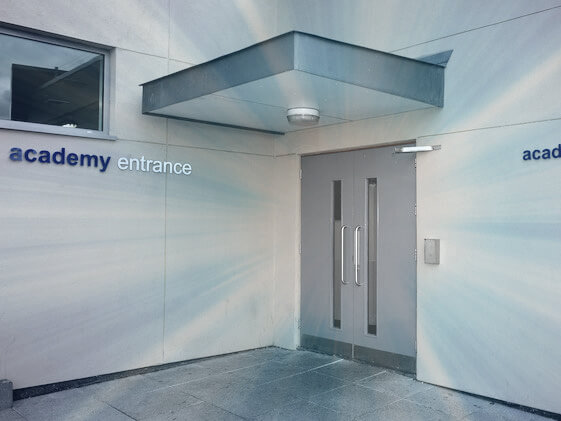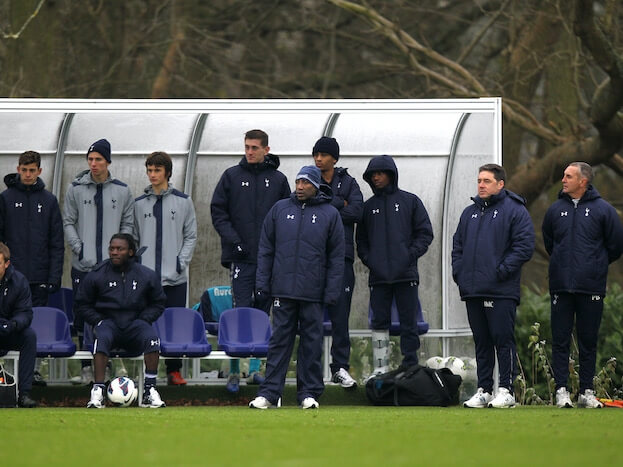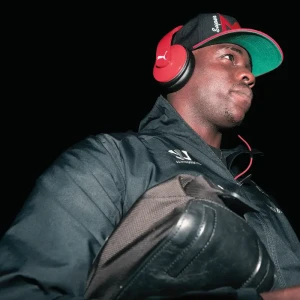A quick intro to the UK's football academy system
Getting into the professional game is a hard and long path; players are willing to go through with it, though, to reach their dreams. The UK's football academy system is set up to support and develop talented youngsters.

A NEW DOOR OPENS: The UK's academy system provides a pathway for youngsters into professional football
The UK football academy system is run by the Football Association (FA) and the English Football League (EFL). These bodies work closely with football Clubs, alongside the English Premier League (EPL), and the Professional Footballers' Association (PFA).
The system saw a huge change in 2012 as the Premier League carried out their Elite Player Performance Plan (EPPP) across the professional game. Their goal was to increase the number and quality of top homegrown players rising through the ranks, putting in set processes for the academies. Of course, different Clubs have their own ways of carrying this out.
There are two parts to how the system is made up; first, the Performance Pathway, which forms the development stages of a player's football education. Additionally, a category rating (1 = highest, 4 = lowest) shows the facilities and resources of an academy.
Each phase has a different focus. Some coaches may say that player enjoyment is vital in the Foundation Phase. Youngsters who have fun & make friends are more likely to progress.
The Youth Development phase sees football become more technical & tactical. The Professional Development Phase aims to prepare players for the first team. Longer coaching programmes and additional support help footballers manage their pathways & future career.
At all stages, player development is key. Professional football academies now aim to help young players reach their potential in the game, education and everyday life. Preparation for life outside or after football is just as important. Most academies offer training in athletic development, psychology & many more. Education programmes are set to develop academic skills & knowledge.
Academy ratings
The EFL and an independent assessment decide the rating of an academy. Football academy ratings are not released, and many clubs do not uncover their ranking to stop them from being overloaded with applications.
football4football -
training team
Although Category 1 academies are the highest rated academies, many lower league clubs also have highly regarded youth systems.
The different types of categories are summarised as follows:
Category 1
- Has all 3 phases of 'The Performance Pathway'
- Elite staff for sports science, nutrition, psychology, speed & coordination
- Can offer full-time education from 11 years old
- Targets players nationally from U14
- Has a higher number of coaching hours per week
- League organised game programme
Category 2
- Has all 3 phases of 'The Performance Pathway'
- May have some elite specialist staff
- Can offer access to educational support
- Recruits players locally (1hr travel time for U9-U11 & 1.5hrs for U12-U16)
- League organised game programme
Category 3
- Has all 3 phases of 'The Performance Pathway'
- Development & coaching staff
- Recruits players locally (1hr travel time for U9-U11 & 1.5hrs for U12-U16)
Category 4
- Coaching & educational support expected for 'Professional Development Phase' only
- Training centres/schools of excellence will be offered to younger players
Getting into an academy
Scouts act on behalf of a Club and are tasked with bringing in high potential players. Scouts regularly attend county football league matches, and this is a great way be recognised. Attending trials, such as the PSFA football trials, guarantees exposure to professional club scouts.
Pro tip: verify a scout's identity with their Club first before going any further.
 STAND OUT: Scouts regularly attend county football league matches and watch players on the sidelines
STAND OUT: Scouts regularly attend county football league matches and watch players on the sidelines
Registration
Registration for an academy means committing to a Club, and them committing to you. Once the form has been signed, you will no longer be able to play grassroots football.
The length of time a player must stay at this Club depends on their age, and this contract can keep continuing yearly unless the Club or player terminates this under the system rules.
Registration length
You should also consider that between the U9 and U16 age groups, you can only be registered to a Club if you are within a certain distance from it.
These restrictions are not applicable for Category 4 academies. For U17s and above there are also no limits.
Final Note
The academy system is an excellent way to start a football career by giving player opportunities that might lead to the professional game.
Although the academy system follows a roughly standardised plan, there are significant differences between the Clubs and what they offer.















